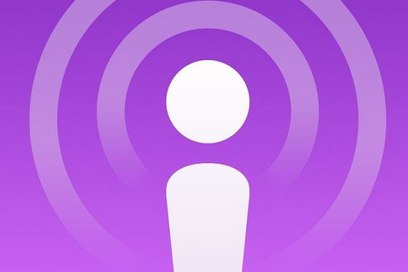A guide to promoting podcastsEvery month, nearly half (49%) of all Americans aged 12-34 listen to podcasts. The podcast industry is going through a major boom, growing at a rapid pace: over the past three years, the number of monthly podcast listeners in America alone has increased by 54%. Unsurprisingly given their growing popularity, the podcast industry is expected to reach $1 billion in annual revenue by next year. With such an enticing opportunity to get in on the increasing success of podcasts as a form of content that can be monetized, it’s not surprising that so many people want to get involved and start recording. But, as with any type of Internet activity that – at least theoretically – anyone can do, there’s a formidable amount of competition. In 2020, there are 850,000 active podcasts. So, how do you make sure that your podcast stands out among such vast amounts of other content and reaches your audience? The following guide will help you get started on crafting an effective PR strategy for promoting your podcast. For more advanced podcast promotion techniques, such as a Wikipedia page or features in traditional media outlets, you’ll need to enlist the help of an expert PR agency – but you can certainly work on expanding your following in the meantime. 1. Define your niche and target audience This piece of advice is true for every kind of online activity intended to create a following and eventually bring in a profit. It’s particularly important for podcasts, however, because unlike general influencer activity on social media, for example, podcasts are regular and topical. Listeners tune in to hear about specific issues, and they need to know what to expect from you each time. If you haven’t already, spend some time on defining the main niche as a podcaster – are your podcasts political commentary, book reviews, or gaming content? Once you have a niche pinned down, define your target audience: people who’d be most interested in following you. If you already have a podcast and some listeners, use the insights from your current followers to get an idea of the age, gender, location, and listening preferences of your audience. 2. Pay attention to quality and use the right platforms Perfect audio quality, great content, and smooth delivery are the essential components of well-crafted podcasts. You’ll need to invest into good recording equipment (professional microphones are easily available these days, after all) and editing software, but it will definitely pay off in the long run. You want your podcasts to be as professional as possible, and they won’t be if they’re recorded using a built-in laptop or smartphone microphone. Once you have some great, high-quality content, make sure you post it on a platform that matters. In this case, iTunes is definitely a must – according to statistics, that’s where around 70% of podcast-listening takes place! Posting samples and clips of your podcasts on YouTube is also recommended. While not really a podcast-friendly platform, YouTube draws much larger audiences, so make sure they can find you and your content. 3. Leverage the power of social media Social media is definitely the number one tool for podcast promotion. Make sure that you have professional profiles on at least two different social media platforms, and use these regularly to promote your podcast content. These profiles should ideally be verified (the blue checkmark badge of official accounts) to add credibility and authority. Connect with people in your niche, engage with your target audience, and get your name in front of people who are likely to take an interest in your podcast. By creating a cohesive and unified online presence, you’ll build up your brand. The choice of social media platforms will depend on both your niche and your target audience. For example, a photography or fashion podcast should have an Instagram account, while a podcast aimed at young teens would best be promoted on platforms that are most popular among this demographic – like Snapchat and TikTok. 4. Reach out to publications in your niche While the target audience is the primary guiding factor for social media promotion, having a well-defined niche is key to connecting with other publications. Contact influencers and the people in charge of websites, social media profiles, and other online publications (for example, on Medium) in your niche, with a large following. If you convince them to mention, share, or feature your podcast, you’ll reach a much broader audience. 5. Invite guests to your podcasts Connect with other podcasters, influencers, and people who are experts in your niche with something to offer your audience. Even if you have a co-host for your podcast, it’s always interesting to introduce a new perspective. Most importantly, if that person has an online presence of their own, you’ll draw their audience to your podcasts. Read Now  Every month, nearly half (49%) of all Americans aged 12-34 listen to podcasts. The podcast industry is going through a major boom, growing at a rapid pace: over the past three years, the number of monthly podcast listeners in America alone has increased by 54%. Unsurprisingly given their growing popularity, the podcast industry is expected to reach $1 billion in annual revenue by next year. With such an enticing opportunity to get in on the increasing success of podcasts as a form of content that can be monetized, it’s not surprising that so many people want to get involved and start recording. But, as with any type of Internet activity that – at least theoretically – anyone can do, there’s a formidable amount of competition. In 2020, there are 850,000 active podcasts. So, how do you make sure that your podcast stands out among such vast amounts of other content and reaches your audience? The following guide will help you get started on crafting an effective PR strategy for promoting your podcast. For more advanced podcast promotion techniques, such as a Wikipedia page or features in traditional media outlets, you’ll need to enlist the help of an expert PR agency – but you can certainly work on expanding your following in the meantime. 1. Define your niche and target audience This piece of advice is true for every kind of online activity intended to create a following and eventually bring in a profit. It’s particularly important for podcasts, however, because unlike general influencer activity on social media, for example, podcasts are regular and topical. Listeners tune in to hear about specific issues, and they need to know what to expect from you each time. If you haven’t already, spend some time on defining the main niche as a podcaster – are your podcasts political commentary, book reviews, or gaming content? Once you have a niche pinned down, define your target audience: people who’d be most interested in following you. If you already have a podcast and some listeners, use the insights from your current followers to get an idea of the age, gender, location, and listening preferences of your audience. 2. Pay attention to quality and use the right platforms Perfect audio quality, great content, and smooth delivery are the essential components of well-crafted podcasts. You’ll need to invest into good recording equipment (professional microphones are easily available these days, after all) and editing software, but it will definitely pay off in the long run. You want your podcasts to be as professional as possible, and they won’t be if they’re recorded using a built-in laptop or smartphone microphone. Once you have some great, high-quality content, make sure you post it on a platform that matters. In this case, iTunes is definitely a must – according to statistics, that’s where around 70% of podcast-listening takes place! Posting samples and clips of your podcasts on YouTube is also recommended. While not really a podcast-friendly platform, YouTube draws much larger audiences, so make sure they can find you and your content. 3. Leverage the power of social media Social media is definitely the number one tool for podcast promotion. Make sure that you have professional profiles on at least two different social media platforms, and use these regularly to promote your podcast content. These profiles should ideally be verified (the blue checkmark badge of official accounts) to add credibility and authority. Connect with people in your niche, engage with your target audience, and get your name in front of people who are likely to take an interest in your podcast. By creating a cohesive and unified online presence, you’ll build up your brand. The choice of social media platforms will depend on both your niche and your target audience. For example, a photography or fashion podcast should have an Instagram account, while a podcast aimed at young teens would best be promoted on platforms that are most popular among this demographic – like Snapchat and TikTok. 4. Reach out to publications in your niche While the target audience is the primary guiding factor for social media promotion, having a well-defined niche is key to connecting with other publications. Contact influencers and the people in charge of websites, social media profiles, and other online publications (for example, on Medium) in your niche, with a large following. If you convince them to mention, share, or feature your podcast, you’ll reach a much broader audience. 5. Invite guests to your podcasts Connect with other podcasters, influencers, and people who are experts in your niche with something to offer your audience. Even if you have a co-host for your podcast, it’s always interesting to introduce a new perspective. Most importantly, if that person has an online presence of their own, you’ll draw their audience to your podcasts. Comments are closed.
|
- Home
- Team
- Tik Tok
- Instagram & FB Verification
- Verified Instagram Accounts
- Instagram Usernames & Brokerage
- Verified Instagram Username Change
- Celebrity Instagram Growth Giveaways
- Verified Instagram Accounts With Desired Username
- Recover Disabled or Hacked Accounts
- Linkedin Username Claim Service
- Acquire Premium Accounts
- YouTube Verification
- Instagram Ban Service
- Twitter Verification
- Become a Forbes Contributor
- Write For Entrepreneur.com
- Verified Twitter Username Change
- Verified Facebook Page With Desired Username
- Instagram Growth
- Reputation Management
- Snapchat Verification
- Famous Birthdays
- Wikipedia Page Creation
- Google Knowledge Panel
- Spotify promotion
- Google News Approval Service
- PR for Influencers & Content Creators
- PR for Brands & Startups
- PR for Crypto, Blockchain & DeFi Companies
- PR for Musicians & Artists
- Partner Program
- Careers
- Blog Articles
- Clients
- Contact
Contact
Only Official Email Address [email protected]Always email directly via our official email to make sure you're liaising with us!
|
|



